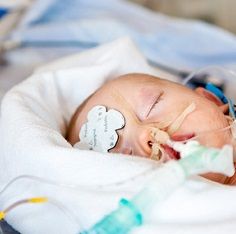Microbe Balance in Infant Airways May Predict Bronchopulmonary Dysplasia, Future Lung Diseases
Because those who experience BPD very early in life are believed to be at a higher risk of decreased lung function and other chronic breathing issues like apnea and asthma, the study of microbial balance in infant airways could provide doctors with important predictive information.

Researchers at the University of Alabama at Birmingham have determined there may be a link between microbial balance at birth and eventual lung and breathing problems, according to a study recently published in Scientific Reports.
Their study included 23 extremely low birth-weight (ELBW) babies and 10 full-term babies born at the UAB Women & Infants Center, as well as data provided by doctors at Drexel regarding 14 additional ELBW babies. All data was gathered within 6 hours of birth, either by caesarean section or vaginally.
Because the infants were born by either method, the researchers believe the microbial DNA is delivered transplacentally, but do not confirm that in their study. The microbes were found in infants born as early as 24 weeks.
Many of the ELBW infants were found to develop bronchopulmonary dysplasia (BPD), an often life-threatening lung condition commonly associated with prematurity. Those predisposed to BPD were observed to have an abnormal microbial balance in their airways, as compared to the full-term and ELBW-resistant babies. “For five ELBW infants who later developed BPD,” the authors write, “the researchers collected periodic airway microbiome samples from birth through 9 weeks and saw extremely similar patterns of change in the microbiomes over time.” The children predisposed to BPD displayed a lower prevalence of Lactobacillus than those children described as “BPD-resistant.”
Because those who experience BPD very early in life are believed to be at a higher risk of decreased lung function and other chronic breathing issues like apnea and asthma, the study of microbial balance in infant airways could provide doctors with important predictive information. The researchers speculate that “the early airway microbiome may prime the developing pulmonary immune system, and dysbiosis in its development may set the stage for subsequent lung disease.”